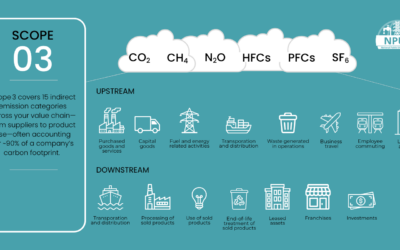The Impact of Data Governance
In the last Motive Power Data Innovation blog, Discovering Insights with Power BI, we talked about the importance of data for organizations and their decision-making. Without a structure for this data, organizations can’t use their data in decisions. Structured data is organized and collected for a purpose while unstructured data lacks purpose, format and organization (BMC Structured vs Unstructured Data). Business decision-making becomes even more difficult when different data sources can’t be tied together. The structure of data has become just as important as the data itself. An organization’s data governance has become vital. Data Governance is the process to ensure unstructured data becomes structured data. We’ll look at how Data Governance does this exactly and what it really means.
Data Governance is the process of managing data quality. It ensures data is identifiable, accessible, usable, and trustworthy. By implementing various standards and procedures, organizations can control data and reduce data inconsistencies that may occur without it. Many organizations use various integrated systems; however, integration doesn’t automatically ensure data quality and compliance. In many cases, the more systems used, the more disparate the data. We have repeatedly seen our clients struggle with this exact issue. There should only be a “single source of truth” for data; otherwise, the data becomes questionable.
Recently, Motive Power helped a large utility client tackle their data governance challenge. The utility lacked streamlined processes to ensure that data was adequately captured and delivered for various systems causing planning decisions without sufficient information. In addition to the misinformed decisions, many systems were showing outdated data.
We designed a process to collect relevant information, implement a data quality control step, and design a database template to store the data. We also worked with the Information Technology team to update any necessary data points in the GIS system of records. Data governance policy implementation allowed this dataset to become reliable and help various stakeholders make better data-driven decisions.
Data governance is necessary to obtain structured data. Implementing the appropriate policies and procedures is essential to guarantee reliable data that can become usable in analytics, visualizations, and business decision-making. Performing analytics without quality data across an organization can lead to inaccurate interpretations, decisions, and overall strategy. We help our clients give structure and meaning to their data. While erroneous data is identifiable through various methods, we focus on becoming a partner you can trust. By looking at what challenges currently exist, we can determine what outcomes are required and the step-by-step plan to achieve those results. We demonstrate the value of structured data and the transformation it can bring to an organization.
Contact us today for more information!



